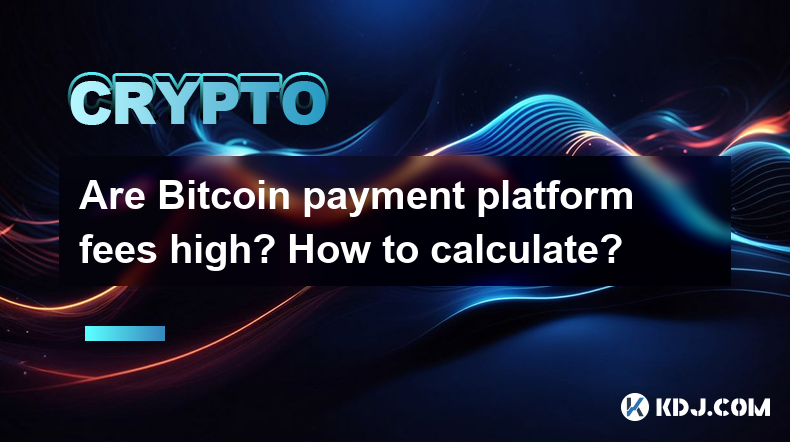-
 Bitcoin
Bitcoin $107,944.5476
-1.49% -
 Ethereum
Ethereum $2,537.3599
-1.67% -
 Tether USDt
Tether USDt $1.0000
-0.04% -
 XRP
XRP $2.2617
-0.67% -
 BNB
BNB $659.4219
-0.33% -
 Solana
Solana $148.8752
-2.32% -
 USDC
USDC $0.9999
-0.02% -
 TRON
TRON $0.2872
-0.42% -
 Dogecoin
Dogecoin $0.1681
-4.63% -
 Cardano
Cardano $0.5765
-2.70% -
 Hyperliquid
Hyperliquid $37.4823
-6.64% -
 Bitcoin Cash
Bitcoin Cash $496.2859
-0.35% -
 Sui
Sui $2.8557
-2.94% -
 Chainlink
Chainlink $13.2566
-2.57% -
 UNUS SED LEO
UNUS SED LEO $9.0527
0.05% -
 Stellar
Stellar $0.2469
-2.25% -
 Avalanche
Avalanche $17.8270
-3.57% -
 Shiba Inu
Shiba Inu $0.0...01160
-2.59% -
 Toncoin
Toncoin $2.7462
-3.29% -
 Hedera
Hedera $0.1561
-2.61% -
 Litecoin
Litecoin $85.9968
-2.22% -
 Monero
Monero $315.7521
-2.22% -
 Dai
Dai $1.0000
-0.01% -
 Polkadot
Polkadot $3.3517
-2.18% -
 Ethena USDe
Ethena USDe $1.0001
0.01% -
 Bitget Token
Bitget Token $4.2999
-3.31% -
 Uniswap
Uniswap $7.3784
-1.57% -
 Aave
Aave $278.7823
-3.32% -
 Pepe
Pepe $0.0...09854
-3.51% -
 Pi
Pi $0.4560
-3.30%
Are Bitcoin payment platform fees high? How to calculate?
2025/04/22 09:56

Bitcoin payment platforms have become increasingly popular for transactions due to their decentralized nature and the potential for lower fees compared to traditional financial systems. However, the fees associated with these platforms can vary significantly, leading many to question whether they are high and how they are calculated. In this article, we will delve into the specifics of Bitcoin payment platform fees, explore how they are calculated, and provide insights into managing and minimizing these costs.
Understanding Bitcoin Payment Platform Fees
Bitcoin payment platform fees are charges imposed by the network and the platform itself for processing transactions. These fees are essential for maintaining the network's integrity and compensating miners for their work in validating transactions. The fees can be broken down into two main categories: network fees and platform fees.
Network fees are paid to miners who secure the Bitcoin network by verifying and adding transactions to the blockchain. These fees are typically calculated based on the size of the transaction in bytes and the current demand for block space. The more complex the transaction, the higher the fee.
Platform fees, on the other hand, are charges levied by the payment platform for facilitating the transaction. These fees can vary widely depending on the platform's business model and the services they offer. Some platforms might charge a flat fee, while others may take a percentage of the transaction amount.
Factors Influencing Bitcoin Payment Platform Fees
Several factors can influence the fees charged by Bitcoin payment platforms. Understanding these can help users make more informed decisions and potentially reduce their costs.
Transaction Size and Complexity: Larger and more complex transactions require more space on the blockchain, leading to higher network fees. Transactions that involve multiple inputs and outputs or those that require faster confirmation times can result in higher fees.
Network Congestion: During periods of high demand, such as when there are many transactions waiting to be processed, the fees can increase. Miners prioritize transactions with higher fees, so users may need to pay more to ensure their transactions are processed quickly.
Platform Policies: Each payment platform has its own fee structure. Some platforms might offer lower fees to attract users, while others might charge more for additional services or faster processing times.
Exchange Rates: If the platform converts Bitcoin to fiat currency, the exchange rate at the time of the transaction can also affect the overall cost.
Calculating Bitcoin Payment Platform Fees
To calculate the fees associated with a Bitcoin payment platform, users need to consider both the network fees and the platform fees. Here is a step-by-step guide to help you understand how to calculate these fees:
Determine the Network Fee: The network fee can be estimated using online fee estimators or by setting a custom fee in your Bitcoin wallet. Most wallets allow you to choose between different fee levels, such as low, medium, and high, which correspond to different confirmation times.
Check the Platform Fee: Review the fee structure of the payment platform you are using. This information is usually available on the platform's website or in their terms of service. Some platforms might charge a percentage of the transaction amount, while others might have a fixed fee.
Calculate the Total Fee: Add the network fee and the platform fee to get the total cost of the transaction. For example, if the network fee is 0.0001 BTC and the platform fee is 1% of a 1 BTC transaction, the total fee would be 0.0001 BTC (network fee) + 0.01 BTC (platform fee) = 0.0101 BTC.
Examples of Bitcoin Payment Platform Fees
To provide a clearer picture, let's look at some examples of fees from popular Bitcoin payment platforms:
BitPay: BitPay charges a processing fee of 1% for transactions. If the network fee is 0.0002 BTC for a 1 BTC transaction, the total fee would be 0.0102 BTC.
Coinbase Commerce: Coinbase Commerce charges a fee of 1% for transactions, with no additional network fees charged by the platform. However, users must still pay the network fee, which could be around 0.0001 BTC for a 1 BTC transaction, resulting in a total fee of 0.0101 BTC.
Braintree: Braintree charges a fee of 1% plus $0.30 per transaction. For a 1 BTC transaction valued at $50,000, the platform fee would be $500.30. If the network fee is 0.0002 BTC, the total fee in USD would be approximately $500.30 + $10 (assuming 1 BTC = $50,000).
Strategies to Minimize Bitcoin Payment Platform Fees
While fees are an inherent part of using Bitcoin payment platforms, there are several strategies users can employ to minimize these costs:
Choose the Right Platform: Selecting a platform with lower fees can significantly reduce your overall costs. Compare the fee structures of different platforms before making a decision.
Optimize Transaction Size: Try to minimize the size and complexity of your transactions. For example, consolidate your Bitcoin holdings into fewer addresses to reduce the number of inputs required for future transactions.
Time Your Transactions: Monitor the network congestion and choose times when the demand for block space is lower. This can help you pay lower network fees.
Use SegWit: Segregated Witness (SegWit) is an upgrade to the Bitcoin protocol that can reduce the size of transactions, leading to lower network fees. Ensure your wallet supports SegWit to take advantage of these savings.
Batch Transactions: If you need to make multiple transactions, consider batching them into a single transaction. This can reduce the overall fee by minimizing the number of transactions that need to be processed.
Frequently Asked Questions
Q: Can I avoid paying any fees when using Bitcoin payment platforms?
A: It is not possible to completely avoid fees when using Bitcoin payment platforms, as both network and platform fees are necessary to maintain the system. However, by employing the strategies mentioned above, you can minimize these fees.
Q: How do I know if a Bitcoin payment platform is trustworthy?
A: To determine the trustworthiness of a Bitcoin payment platform, consider factors such as its reputation, user reviews, security measures, and regulatory compliance. Platforms with a long history of reliable service and transparent fee structures are generally more trustworthy.
Q: Are there any hidden fees I should be aware of when using Bitcoin payment platforms?
A: Some platforms may have hidden fees, such as withdrawal fees, currency conversion fees, or fees for certain types of transactions. Always read the platform's terms of service and fee schedule carefully to understand all potential costs.
Q: Can I negotiate fees with Bitcoin payment platforms?
A: Most Bitcoin payment platforms have fixed fee structures and do not allow for negotiation. However, some platforms might offer discounts or lower fees for high-volume transactions or long-term partnerships. It is worth inquiring about any potential discounts or fee waivers.
免責事項:info@kdj.com
提供される情報は取引に関するアドバイスではありません。 kdj.com は、この記事で提供される情報に基づいて行われた投資に対して一切の責任を負いません。暗号通貨は変動性が高いため、十分な調査を行った上で慎重に投資することを強くお勧めします。
このウェブサイトで使用されているコンテンツが著作権を侵害していると思われる場合は、直ちに当社 (info@kdj.com) までご連絡ください。速やかに削除させていただきます。
- Bitcoin Solaris Market Launch: A New Dawn or Just Another Altcoin?
- 2025-07-08 20:30:12
- Bitcoin, Memecoin Mania, and the All-Time High Hunt: What's Next?
- 2025-07-08 20:30:12
- Byrq Coin: Scam or Savior? A Deep Dive Review
- 2025-07-08 20:50:12
- Shiba Inu's Burn Rate Bonanza: Can Crypto Burns Ignite a Price Rally?
- 2025-07-08 20:50:12
- Telekom、Injective、およびValidators:ネットワークのセキュリティと成長に深く潜る
- 2025-07-08 21:10:12
- ROM:黄金時代 - 50万の事前登録と暗号戦利品!
- 2025-07-08 21:15:12
関連知識

How to customize USDT TRC20 mining fees? Flexible adjustment tutorial
2025-06-13 01:42:24
<h3>Understanding USDT TRC20 Mining Fees</h3><p>Mining fees on the TRON (TRC20) network are essential for processing transactions. U...

USDT TRC20 transaction is stuck? Solution summary
2025-06-14 23:15:05
<h3>Understanding USDT TRC20 Transactions</h3><p>When users mention that a USDT TRC20 transaction is stuck, they typically refer to ...

How to cancel USDT TRC20 unconfirmed transactions? Operation guide
2025-06-13 23:01:04
<h3>Understanding USDT TRC20 Unconfirmed Transactions</h3><p>When dealing with USDT TRC20 transactions, it’s crucial to understand w...

How to check USDT TRC20 balance? Introduction to multiple query methods
2025-06-21 02:42:53
<h3>Understanding USDT TRC20 and Its Importance</h3><p>USDT (Tether) is one of the most widely used stablecoins in the cryptocurrenc...

What to do if USDT TRC20 transfers are congested? Speed up trading skills
2025-06-13 09:56:41
<h3>Understanding USDT TRC20 Transfer Congestion</h3><p>When transferring USDT TRC20, users may occasionally experience delays or co...

The relationship between USDT TRC20 and TRON chain: technical background analysis
2025-06-12 13:28:48
<h3>What is USDT TRC20?</h3><p>USDT TRC20 refers to the Tether (USDT) token issued on the TRON blockchain using the TRC-20 standard....

How to customize USDT TRC20 mining fees? Flexible adjustment tutorial
2025-06-13 01:42:24
<h3>Understanding USDT TRC20 Mining Fees</h3><p>Mining fees on the TRON (TRC20) network are essential for processing transactions. U...

USDT TRC20 transaction is stuck? Solution summary
2025-06-14 23:15:05
<h3>Understanding USDT TRC20 Transactions</h3><p>When users mention that a USDT TRC20 transaction is stuck, they typically refer to ...

How to cancel USDT TRC20 unconfirmed transactions? Operation guide
2025-06-13 23:01:04
<h3>Understanding USDT TRC20 Unconfirmed Transactions</h3><p>When dealing with USDT TRC20 transactions, it’s crucial to understand w...

How to check USDT TRC20 balance? Introduction to multiple query methods
2025-06-21 02:42:53
<h3>Understanding USDT TRC20 and Its Importance</h3><p>USDT (Tether) is one of the most widely used stablecoins in the cryptocurrenc...

What to do if USDT TRC20 transfers are congested? Speed up trading skills
2025-06-13 09:56:41
<h3>Understanding USDT TRC20 Transfer Congestion</h3><p>When transferring USDT TRC20, users may occasionally experience delays or co...

The relationship between USDT TRC20 and TRON chain: technical background analysis
2025-06-12 13:28:48
<h3>What is USDT TRC20?</h3><p>USDT TRC20 refers to the Tether (USDT) token issued on the TRON blockchain using the TRC-20 standard....
すべての記事を見る

























































































